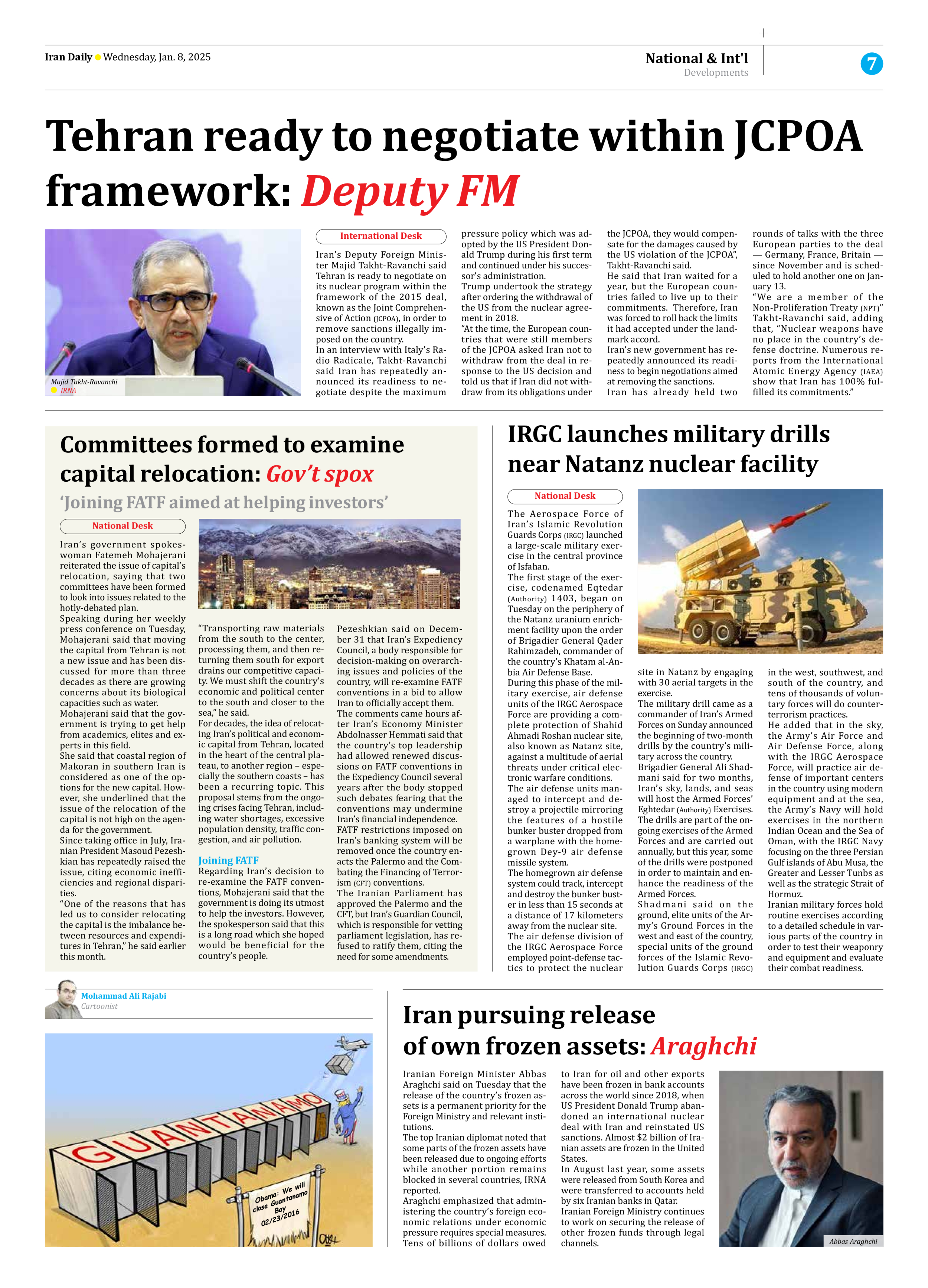
Committees formed to examine capital relocation: Gov’t spox
‘Joining FATF aimed at helping investors’
Iran’s government spokeswoman Fatemeh Mohajerani reiterated the issue of capital’s relocation, saying that two committees have been formed to look into issues related to the hotly-debated plan.
Speaking during her weekly press conference on Tuesday, Mohajerani said that moving the capital from Tehran is not a new issue and has been discussed for more than three decades as there are growing concerns about its biological capacities such as water.
Mohajerani said that the government is trying to get help from academics, elites and experts in this field.
She said that coastal region of Makoran in southern Iran is considered as one of the options for the new capital. However, she underlined that the issue of the relocation of the capital is not high on the agenda for the government.
Since taking office in July, Iranian President Masoud Pezeshkian has repeatedly raised the issue, citing economic inefficiencies and regional disparities.
“One of the reasons that has led us to consider relocating the capital is the imbalance between resources and expenditures in Tehran,” he said earlier this month.
“Transporting raw materials from the south to the center, processing them, and then returning them south for export drains our competitive capacity. We must shift the country’s economic and political center to the south and closer to the sea,” he said.
For decades, the idea of relocating Iran’s political and economic capital from Tehran, located in the heart of the central plateau, to another region – especially the southern coasts – has been a recurring topic. This proposal stems from the ongoing crises facing Tehran, including water shortages, excessive population density, traffic congestion, and air pollution.
Joining FATF
Regarding Iran’s decision to re-examine the FATF conventions, Mohajerani said that the government is doing its utmost to help the investors. However, the spokesperson said that this is a long road which she hoped would be beneficial for the country’s people.
Pezeshkian said on December 31 that Iran’s Expediency Council, a body responsible for decision-making on overarching issues and policies of the country, will re-examine FATF conventions in a bid to allow Iran to officially accept them.
The comments came hours after Iran’s Economy Minister Abdolnasser Hemmati said that the country’s top leadership had allowed renewed discussions on FATF conventions in the Expediency Council several years after the body stopped such debates fearing that the conventions may undermine Iran’s financial independence.
FATF restrictions imposed on Iran’s banking system will be removed once the country enacts the Palermo and the Combating the Financing of Terrorism (CFT) conventions.
The Iranian Parliament has approved the Palermo and the CFT, but Iran’s Guardian Council, which is responsible for vetting parliament legislation, has refused to ratify them, citing the need for some amendments.







